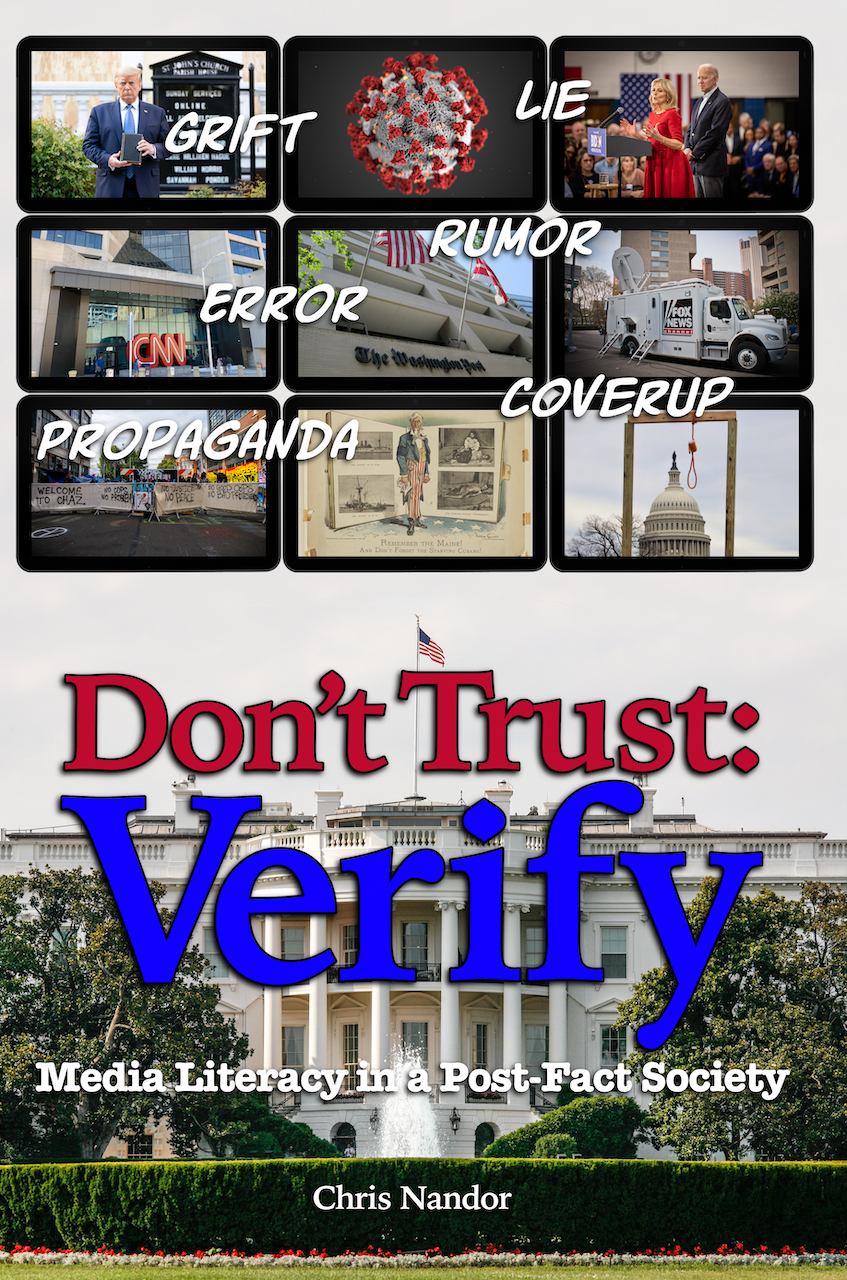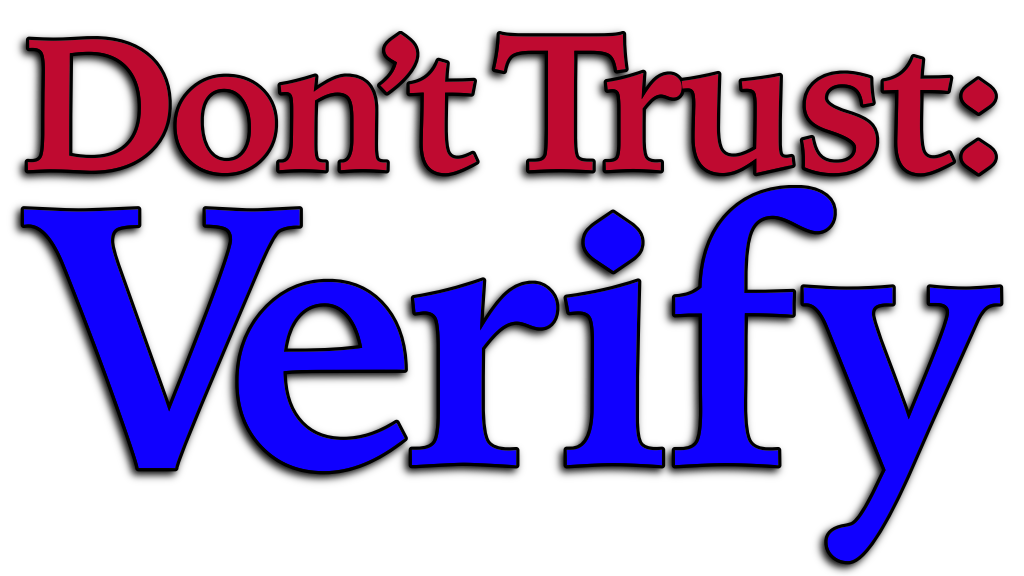
Don’t Trust: Verify is an indispensable book for understanding media in the 2020s and beyond.
The media has changed significantly. We don’t know who or what to believe, and we often believe things that we find out later are false. Should you believe that masks are necessary to keep children safe, or that they are harmful over time? Are gas price increases due to domestic choices, or international shortages? Is the Outrage of the Day™ part of a larger and scary trend, or is this just a trick designed to get you to click?
Most “Media Literacy” tries to explain how to identify what media sources to trust. But this is totally wrong: all the “reputable” sources get things wrong, every day. Even fact-checkers are regularly wrong and biased. Don’t Trust: Verify is different: it explains why you shouldn’t trust any of them.
You can’t be an expert on everything, but that doesn’t mean you have to believe everything you’re told. This book answers the question: How do you know what to believe, and what not to?
Don’t Trust: Verify will explain how the media got the way it is, help you understand what they are really saying, give you tools to find the truth behind the claims made, and offer practical advice for how to consume media.
The book does not try to fix the journalism business; it is about helping you deal with their neverending cycle of garbage.
Preorder Now
If you preorder, you can see and participate in the writing of Don’t Trust: Verify, via the invite-only Substack (unless you select an option with “No Substack access”).
Estimated publishing date is 2024. Order Don’t Trust: Verify now, and you will get access to the Substack now, and the book will be sent as soon as it is completed.
… and for a limited time, I will personally grant anyone paying $100 with — in addition to the digital book, autographed book, and Substack access — a totally real and invaluable Doctorate of Philosophy in Journalism, including signed diploma, from the University of Pudge.
Keep up to date @DontTrustVerfy.
About the Author
My name is Chris Nandor. I have a degree in journalism, but don’t hold that against me. I decided I hated the news business, and learned to code. I’ve written many articles and some books about computer programming, as well as lots of software. I’ve written many songs. I’ve written analyses of laws and bills and court decisions. I’ve written an embarrassing number of posts on social media and newsgroups and BBSes.
I write a lot.
In all of my writing, one of the recurring themes is that I like people to be well-informed. It’s a big part of why I got into journalism in the first place. And similarly, I despise misinformation. It’s a big part of why I got out of journalism in the first place.
Now, I can’t make you well-informed. I can’t write about every issue that people aren’t well-informed about, and get them to read and believe what I write. But I can help people figure out how to be well-informed on their own.
I’ve been a consumer and critic of news media for a few decades now, and I’ve learned a lot, and I believe this book is going to help you. And that’s why I am writing it.
